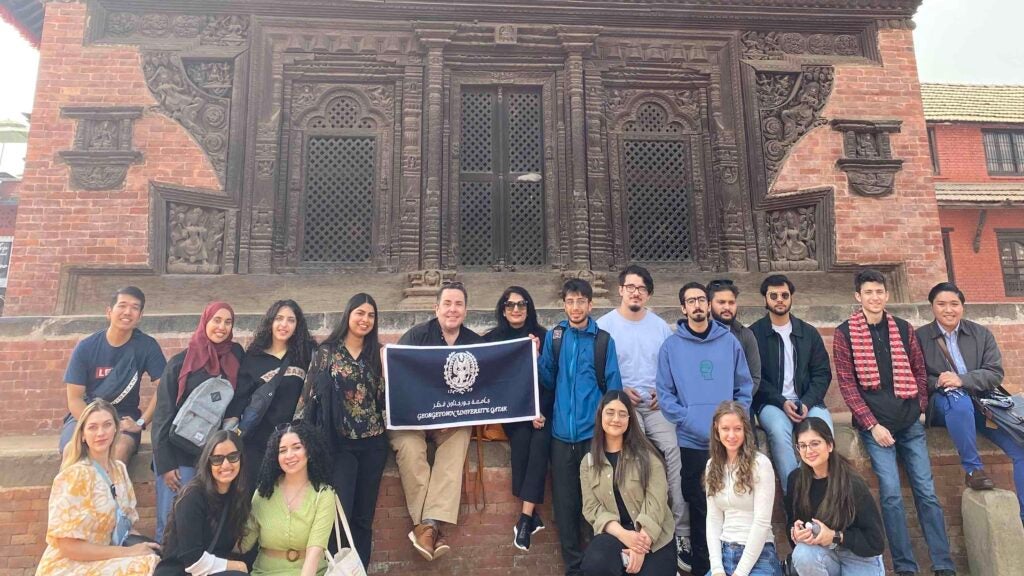Students Travel to Nepal for Experiential Lessons in Conflict Resolution

To get a first-hand look at the complexity of post-conflict reconciliation and the power of dialogue to secure a brighter future, 17 students from Georgetown University in Qatar (GU-Q) traveled to Nepal as part of the university’s award-winning Zones of Conflict, Zones of Peace (ZCZP) experiential learning program.
For eight days, students explored peace-building efforts in Nepal following the 2006 peace agreement that ended a decade-long conflict between the Nepalese government and a Maoist insurgency. The trip provided insight into the real-life people and places discussed in the three-credit “War and Migration in Nepal” course that is part of the ZCZP program at GU-Q, a QF partner.
During the trip, students had the opportunity to meet with representatives from civil society organizations, government officials, former insurgents, and scholars working on peacebuilding efforts. They also visited areas and communities affected by the conflict.
For Culture and Politics major John Carlos Burog (SFS’25), the trip was a powerful reminder of the importance of empathy and understanding in conflict resolution. “Studying a conflict from afar is one thing, but talking to people who have felt the conflict firsthand is another. Sometimes stories and accounts are just better told than written.”
According to course instructor Zahra Babar, associate director for research at GU-Q’s Center for International and Regional Studies, programs like ZCZP are key components of Georgetown’s approach to experiential learning. “The opportunity to engage with complex issues in a hands-on way is an incomparable educational experience that offers a far deeper understanding of the challenges facing communities affected by conflict.”
Course co-instructor Dean Brendan Hill emphasized the value of a student-centered approach to learning, saying: “When future leaders and changemakers go beyond the classroom by connecting with people and communities, they gain cultural competency and a sense of social responsibility that inspires a commitment to working collaboratively towards a more just and equitable world.”
International History major Shifa Nouman (SFS’23) echoed his sentiment, saying: “As an aspiring academic, this was an eye-opening experience for me. I realized that pursuing research is more than just publishing papers; it’s also an opportunity to facilitate projects that empower those who are suffering, and give them the resources to tell their stories.”
Zones of Conflict, Zones of Peace is one of several experiential learning programs Georgetown offers as part of its international affairs curriculum. Past trips have included visits to post-conflict sites all around the world, including Cambodia, Spain, and Poland.